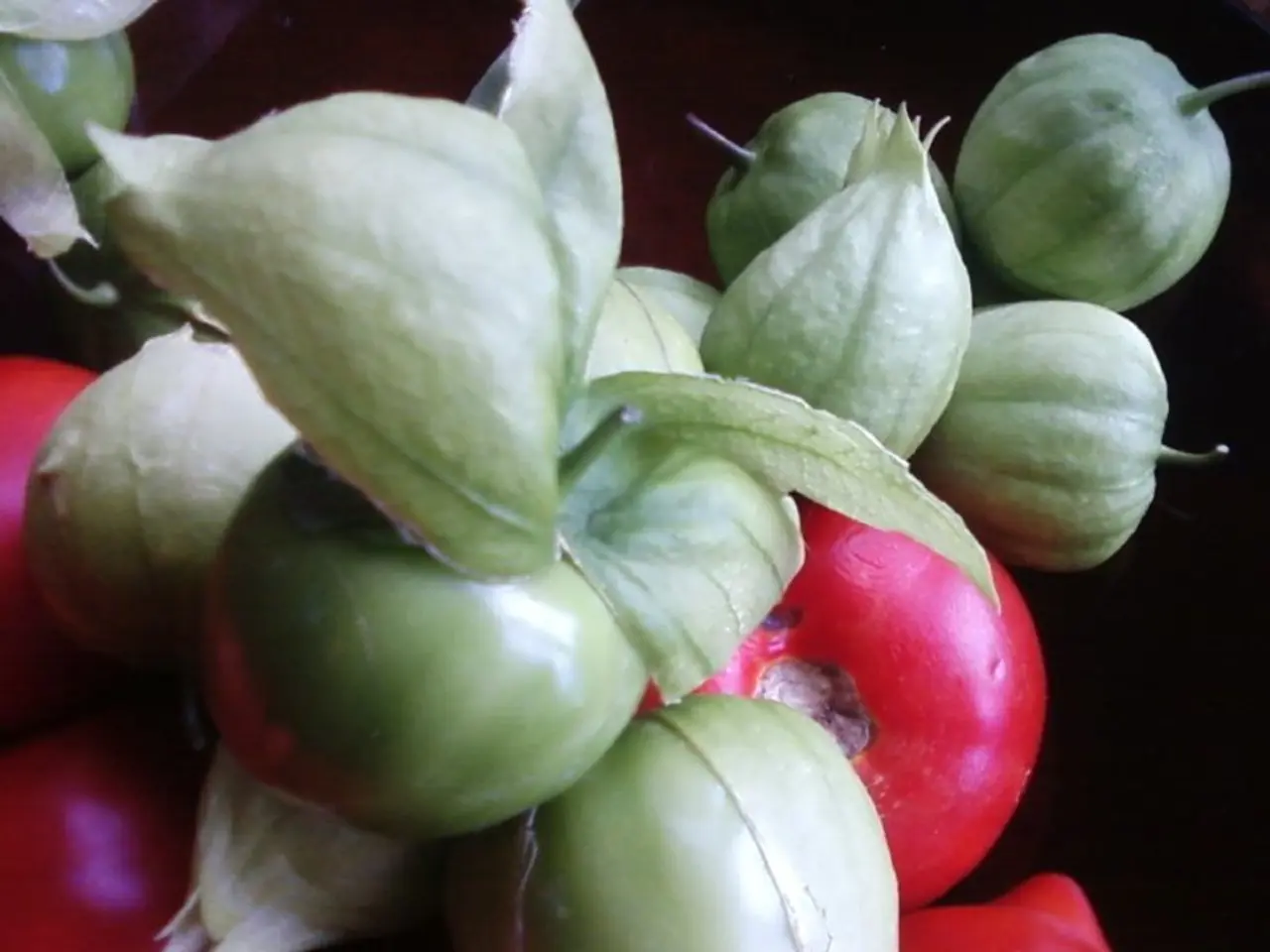Strategies for Naturally Controlling Garden Insects
In the realm of gardening, maintaining a thriving and pest-free vegetable patch is a common goal for many. Organic pest control offers a solution that is both environmentally friendly and safe for children and pets. This approach combines various methods to keep gardens healthy and pest-free, while promoting sustainability and preserving biodiversity.
One key component of organic pest control is the use of neem oil, a natural pesticide derived from the neem tree. This versatile substance acts as a natural pesticide and antifungal agent, effectively targeting pests without harming beneficial insects like bees or ladybugs.
Companion planting is another effective strategy. By strategically growing plants together, such as marigolds near tomatoes and basil near peppers, gardeners can take advantage of the natural repellent properties of certain plants. Marigolds, for instance, release a scent that many pests dislike, making them an effective deterrent. Moreover, companion plants can help each other, creating a natural barrier against pests.
Encouraging beneficial insects like ladybirds, lacewings, and parasitic wasps is another cornerstone of organic pest control. These insects play a crucial role in biological pest control, helping to control pest populations without the use of harmful chemicals.
Physical barriers and crop rotation also play a significant role in organic pest management. Row covers, for example, can protect plants from larger pests like cabbage worms, while crop rotation disrupts pest life cycles and limits infestations sustainably.
In addition to these methods, homemade organic sprays, such as garlic and chili water, can be used to target specific pests. Regular monitoring of plants for signs of pests is also crucial, as early detection can prevent infestations from becoming unmanageable.
Weather conditions also play a role in pest management. Some pests thrive in specific conditions, so keeping an eye on the weather can help gardeners stay one step ahead of potential infestations.
By adopting these organic methods, gardeners can maintain a balanced garden ecosystem, targeting pests without damaging soil life or beneficial insects. This approach offers numerous benefits, including healthier plants, safety for children and pets, environmental protection, and sustainable practices.
References: [1] Integrated Pest Management (IPM). (n.d.). Retrieved from https://www.epa.gov/pesticides/integrated-pest-management-ipm
[2] Organic Pest Management. (n.d.). Retrieved from https://www.gardenmyths.com/myths/organic-pest-management/
[3] Companion Planting. (n.d.). Retrieved from https://www.gardeningknowhow.com/garden-how-to/companion-planting.htm
[4] Neem Oil. (n.d.). Retrieved from https://www.gardeningknowhow.com/garden-how-to/soil-fertilizers/organic-fertilizers/neem-oil-uses-for-gardening.htm
[5] Beneficial Insects. (n.d.). Retrieved from https://www.gardeningknowhow.com/garden-how-to/beneficial-insects.htm
A home-and-garden enthusiast may employ neem oil, a natural pesticide, in their gardening practice, which doubles as an antifungal agent and provides targeted pest control without harming beneficial insects like bees or ladybugs (science). This plant-based solution aligns with the health-and-wellness focus, as it poses no danger to children or pets (lifestyle).
In the approach of companion planting, marigolds—known for their natural repellent properties—are strategically placed near tomatoes, while basil is grown close to peppers, ensuring a sustainable and pest-free vegetable patch (gardening and lifestyle).
The balanced garden ecosystem that results from successful organic pest control offers advantages that extend beyond merely maintaining a thriving vegetable patch. It promotes healthier plants, environmental protection, and sustainable practices, positioning it as an essential strategy for those interested in fitness-and-exercise, health-and-wellness, and life in general (health-and-wellness, lifestyle, and fitness-and-exercise).




